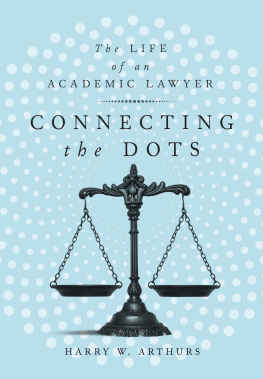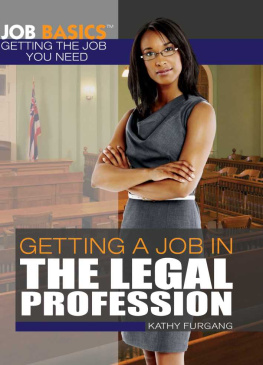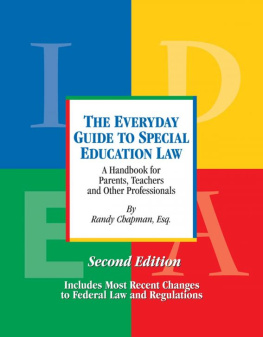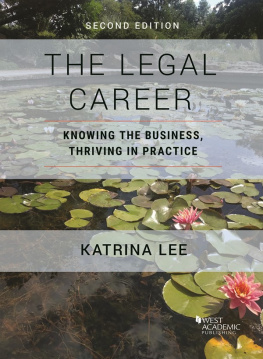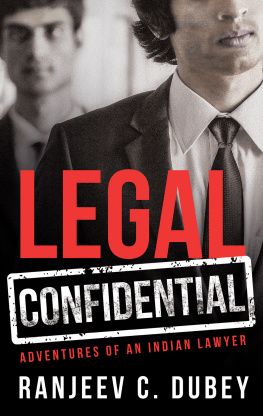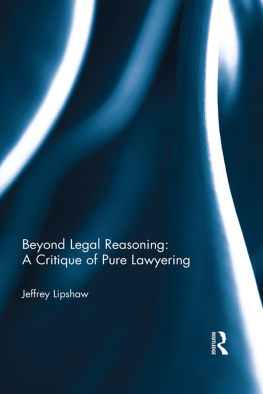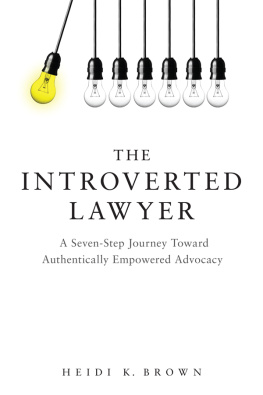
CONNECTING THE DOTS
Conecting the Dots
The Life of an Academic Lawyer
HARRY W. ARTHURS
McGill-Queens University Press
Montreal & Kingston London Chicago
and
The Osgoode Society for Canadian Legal History
Toronto
McGill-Queens University Press 2019
ISBN 978-0-7735-5709-3 (cloth)
ISBN 978-0-7735-5757-4 (ePDF)
ISBN 978-0-7735-5758-1 (ePUB)
Legal deposit second quarter 2019
Bibliothque nationale du Qubec
Printed in Canada on acid-free paper that is 100% ancient forest free
(100% post-consumer recycled), processed chlorine free
We acknowledge the support of the Canada Council for the Arts.
Nous remercions le Conseil des arts du Canada de son soutien.
Library and Archives Canada Cataloguing in Publication
Title: Conecting the dots : the life of an academic lawyer / Harry W. Arthurs.
Names: Arthurs, H. W. (Harry William), 1935 author.
Description: Includes bibliographical references and index.
Identifiers: Canadiana (print) 20190048212 | Canadiana (ebook) 2019004828X | ISBN 9780773557093 (hardcover) | ISBN 9780773557574 (ePDF) | ISBN 9780773557581 (ePUB)
Subjects: LCSH: Arthurs, H. W. (Harry William), 1935 | LCSH: Law teachersCanadaBiography. | LCSH: College teachersCanadaBiography. | LCSH: LawyersCanadaBiography. | LCGFT: Autobiographies.
Classification: LCC KE416.A78 A3 2019 | LCC KF345.Z9 A78 2019 kfmod | DDC 340.092dc23
This book was typeset in 10.5/13 Sabon.
To Eli, Carlo, Olive, and Tallulah
Contents
Foreword
Harry Arthurs has been a centrally important figure in Canadian legal education for more than fifty years. He came to national prominence as a scholar and educator in the 1960s and 1970s with his seminal writing on labour law. In the 1970s, he was dean of Osgoode Hall Law School, and in 1983 he was principally responsible for Law and Learning, the most important report on legal education in the past half century. From 1985 to 1992 he was president of York University. He has also served on many government commissions investigating labour law, and as the president of the Canadian Civil Liberties Association. In addition, he has written extensively on legal history, the legal profession, and legal education, with a special emphasis on the effect of globalization on the latter two areas. This account of Arthurss intellectual trajectory, more of a life and times than an autobiography, is the memoir of a person who has lived his professional life to the full and rendered his country much meritorious service. It covers all aspects of his career, a compendium of trials, tribulations, and triumphs, with frankness, perspicacity, and humour. Readers will learn about the blacks arts of academic administration as well as why Arthurs can call himself a useful idiot!
The purpose of the Osgoode Society for Canadian Legal History is to encourage research and writing in the history of Canadian law. The Society, which was incorporated in 1979 and is registered as a charity, was founded at the initiative of the Honourable R. Roy McMurtry and officials of the Law Society of Upper Canada. The society seeks to stimulate the study of legal history in Canada by supporting researchers, collecting oral histories, and publishing volumes that contribute to legal-historical scholarship. This years books bring the total published since 1981 to 109, in all fields of legal history the courts, the judiciary, and the legal profession, as well as on the history of crime and punishment, women and law, law and economy, the legal treatment of ethnic minorities, and famous cases and significant trials.
Current directors of the Osgoode Society for Canadian Legal History are Heidi Bohaker, Bevin Brooksbank, Shantona Chaudhury, David Chernos, Linda Silver Dranoff, Michael Fenrick, Timothy Hill, Ian Hull, Trisha Jackson, Mahmud Jamal, Virginia MacLean, Waleed Malick, Rachel McMillan, Roy McMurtry, Malcolm Mercer, Caroline Mulroney, Dana Peebles, Paul Reinhardt, William Ross, Paul Schabas, Robert Sharpe, Jon Silver, Alex Smith, Lorne Sossin, Mary Stokes, and Michael Tulloch.
Robert J. Sharpe
President
Jim Phillips
Editor-in-Chief
CONNECTING THE DOTS
INTRODUCTION
To Write or Not to Write?
Autobiography is an odd art form. If its too personal and intimate, it becomes an exercise in auto-eroticism; if its not personal enough, if its the history of a one-dimensional public or professional life, it lacks authenticity. Worse yet, autobiography depends on sources that cant be depended upon on paper records that are often fragmentary or sometimes missing altogether, or on the authors memory that inevitably plays tricks and, with advancing years, becomes friskier and friskier. And worst of all, in my case at least, autobiography may be surplus to requirements. I have published a couple of mini-memoirs, Does posterity really need more of me?
Nonetheless, autobiography is an art form with certain attractions. If begun as a diary early in ones life (which this one was not), it instils in the author habits of self-reflection; if undertaken in retirement as a way of filling hours in a formerly crowded schedule (which this one was), it affords an opportunity for honest reminiscence about, or consoling revision of, what was and what might have been. And finally, autobiography is not just for the autobiographer: it provides fodder for discussion by the other dramatis personae as well as footnotes for subsequent serious historians. These are persuasive arguments, and Ive almost convinced myself to begin.
Almost: but not quite. If I do decide to write something, it is not going to be an autobiography in the strict sense of the word an account of a persons life written by that person. Rather than writing about my life I want to write about my lifes work, about the events, ideas, and people that shaped it, about whether Ive made a difference.
Reader: do we have an understanding? Im not going to take you on the usual autobiographers ramble through the thickets of childhood and adolescence, the lush forest of adult relationships, or the broad sunlit uplands (or bleak tundra) of dotage and decline. Im not going to say much about love, friendship, or obsession, about pride, regret, or resentment. This work-focused approach exposes me to the risk of sounding unidimensional and inauthentic, as Ive acknowledged. But I promise to link events in my career to my private life whenever the two are intertwined, and to be as frank about my public and professional adventures as libel laws and good taste permit.
Agreed? A deal? Good! Ill begin at the beginning. No, on second thought, Ill begin before the beginning.
Before the Beginning, and My Life So Far
BEFORE THE BEGINNING
My maternal grandparents were remarkable people. Harry Dworkin emigrated to Toronto circa 1905 from the Ukraine, where his family was involved in the tobacco business. He was nineteen or so when he joined two of his siblings who had come earlier. Very soon, he and his brother Edward opened a tobacco, stationery, and sundries shop in St Johns Ward, where Jewish immigrants from Eastern Europe settled at the beginning of the twentieth century. A second business followed Dworkins Jewish Advertising Bureau and then, in 1917, a third, E & H Dworkin travel agency.
Shortly after the end of World War I, Harry began a series of trips to Eastern Europe to organize trainloads of immigrants mostly women and children being reunited with a male relative who had gone ahead to establish himself in Canada in the expectation (delayed by the war) that he would soon send for the rest of his family. This business flourished to the point where Harry had an agent and a secretary in Warsaw making local arrangements including purchasing tickets, contacting passengers, making arrangements for them to assemble on a specified departure date, and other logistical matters. Harry himself visited some of the major cities in Poland to contact prospective clients; according to his letters, on one occasion he was the guest of honour at a civic reception and a poem dedicated to him appeared in a local newspaper.
Next page
